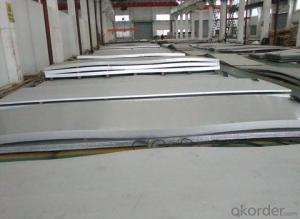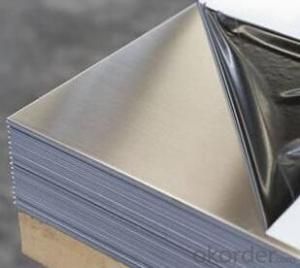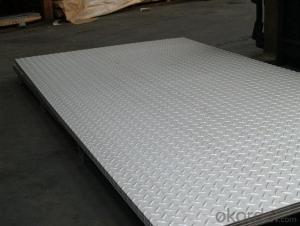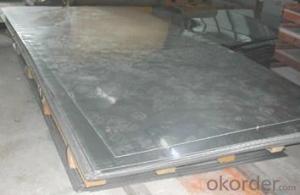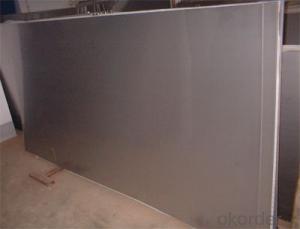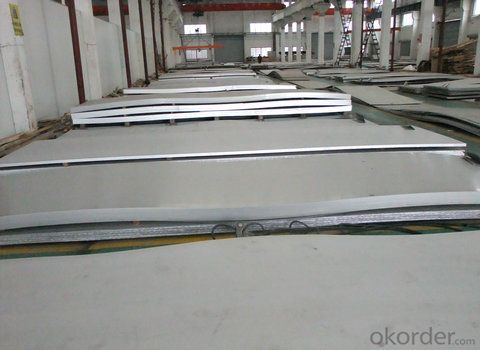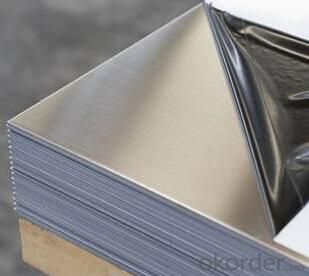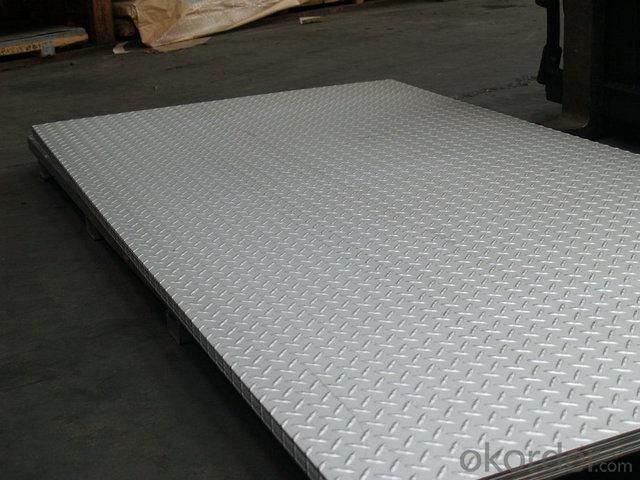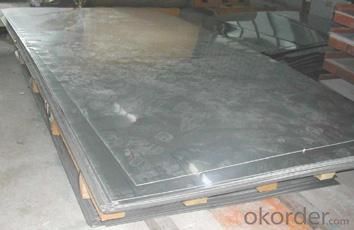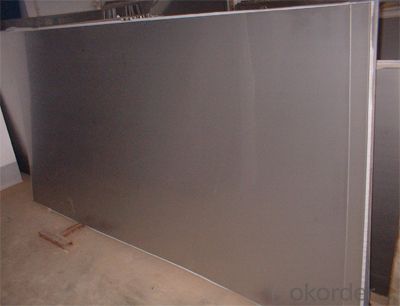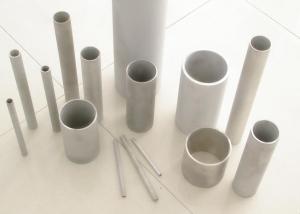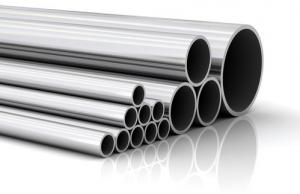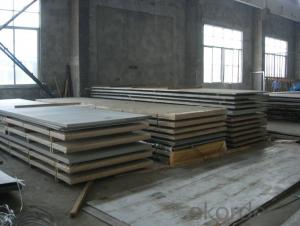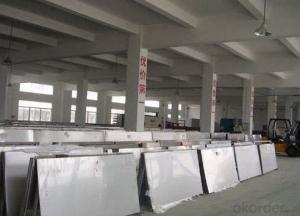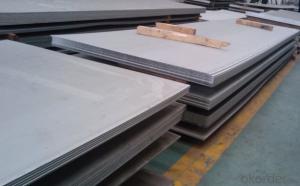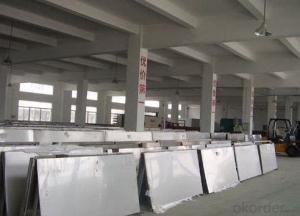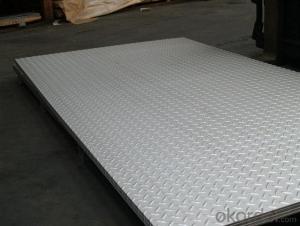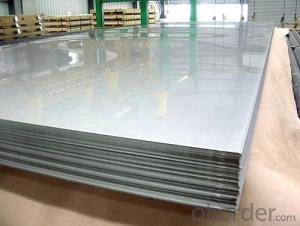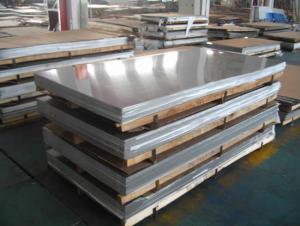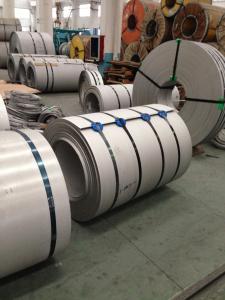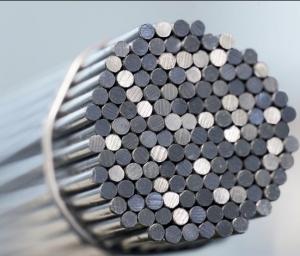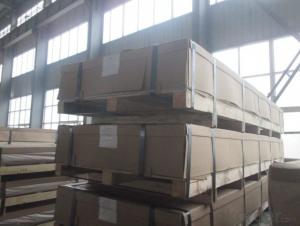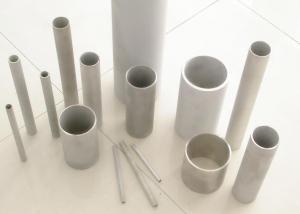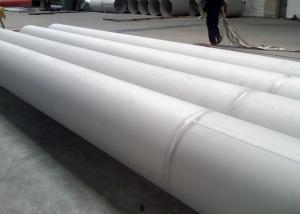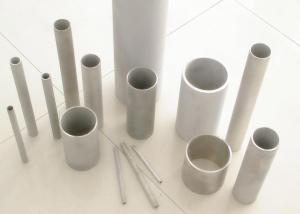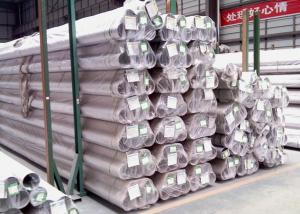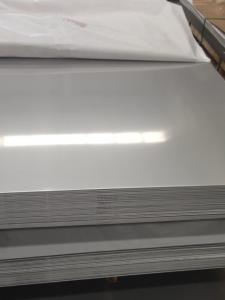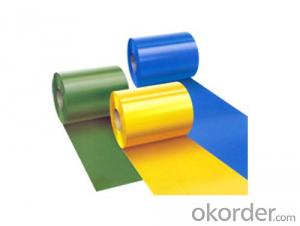Stainless Steel sheet and plate with Big discount
- Loading Port:
- Shanghai
- Payment Terms:
- TT OR LC
- Min Order Qty:
- 10000 m.t.
- Supply Capability:
- 5000000 m.t./month
OKorder Service Pledge
OKorder Financial Service
You Might Also Like
Specifications of stainless steel
304 stainless Steel Plate
stainless steel plate,steel sheet,steel plate
Standard: ASTM,GB,DIN,JIS,ISO,EN,etc.
TISCO stainless Steel Plate 304/NO.1 finished
stainless steel plate,steel sheet,steel plate
Standard: ASTM,GB,DIN,JIS,ISO,EN,etc.
Delivery short and low cost advantage.
Description of stainless steel:
stainless steel plate,hot rolled stainless steel plate,cold rolled stainless steel plate,stainless steel sheet,steel sheet,sheet
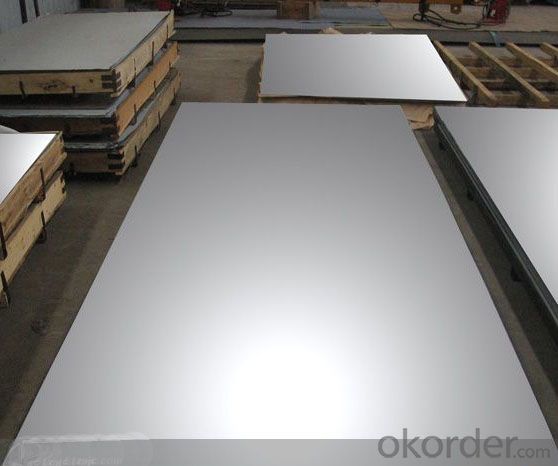
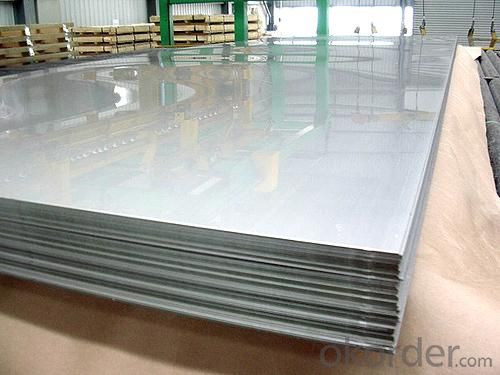
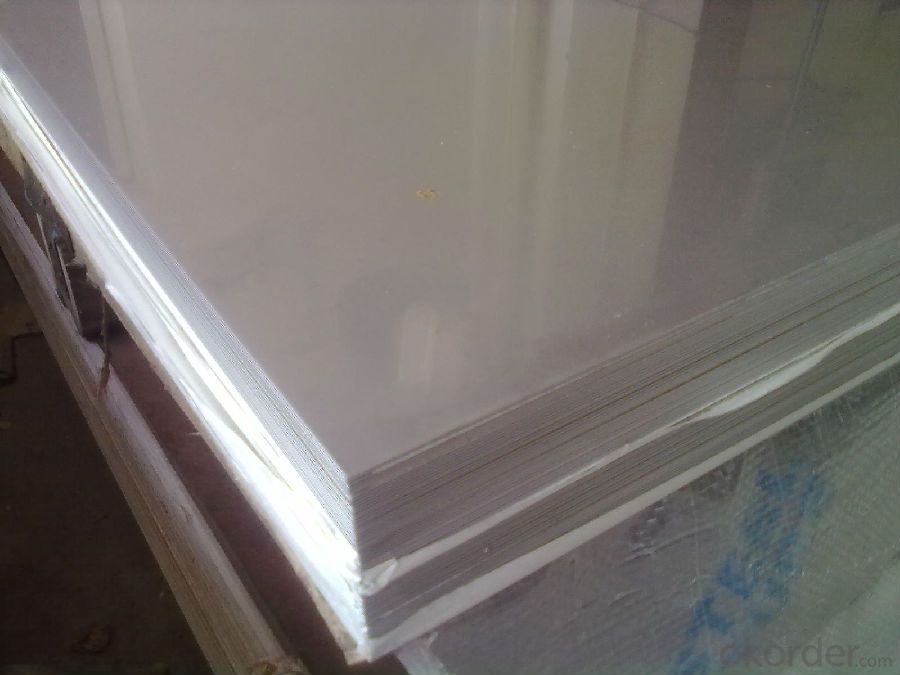
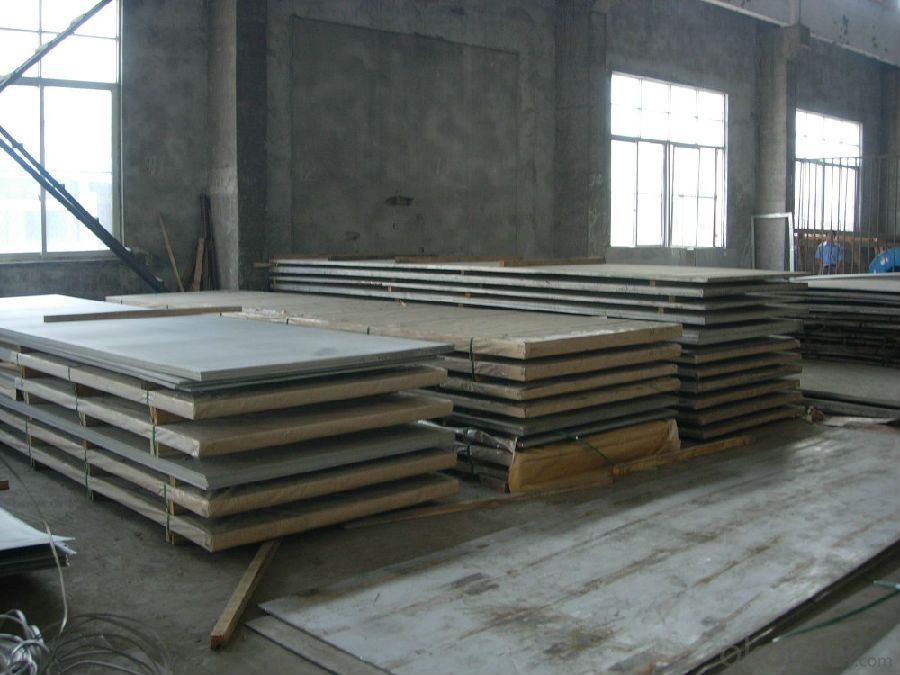
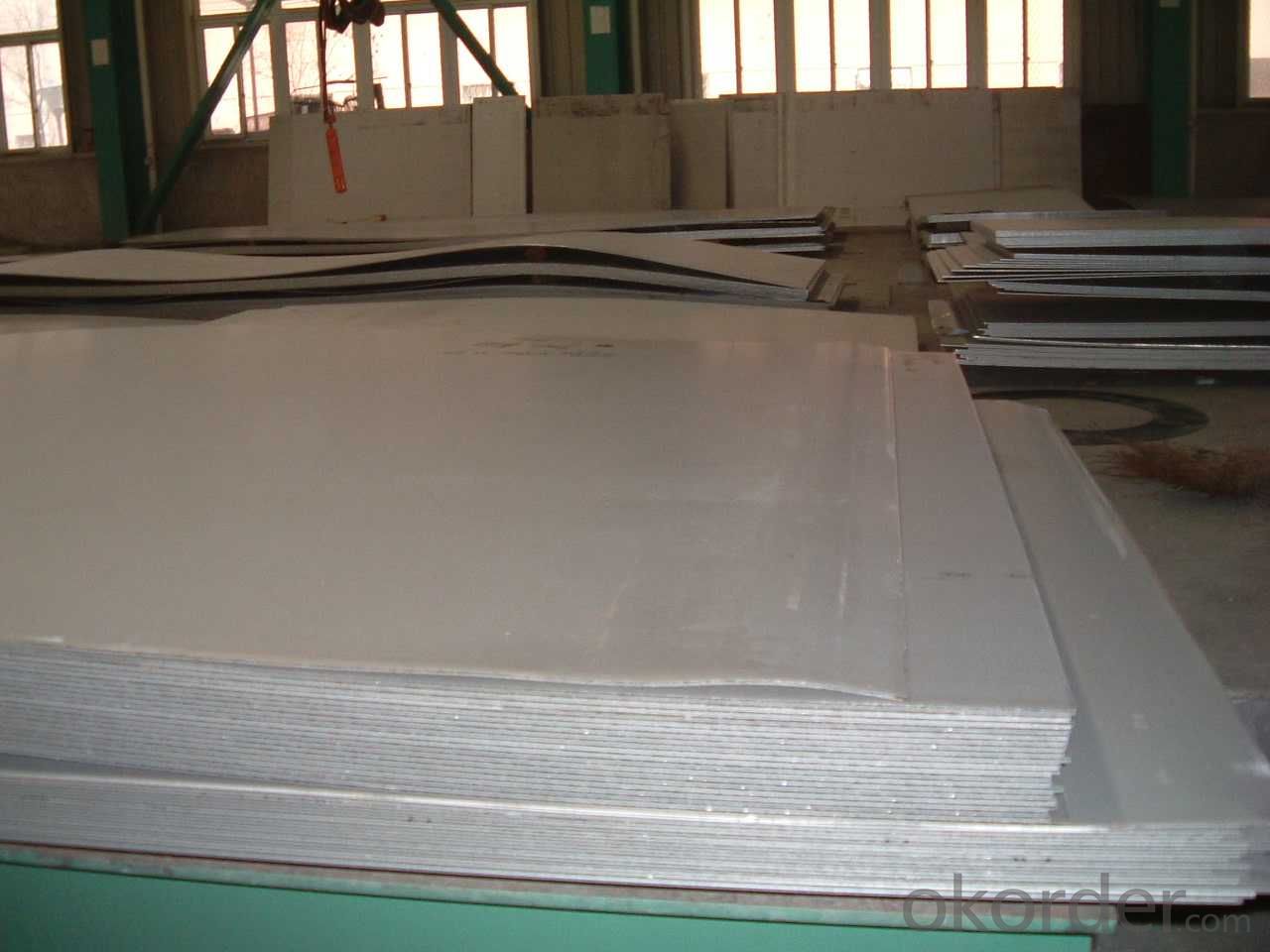
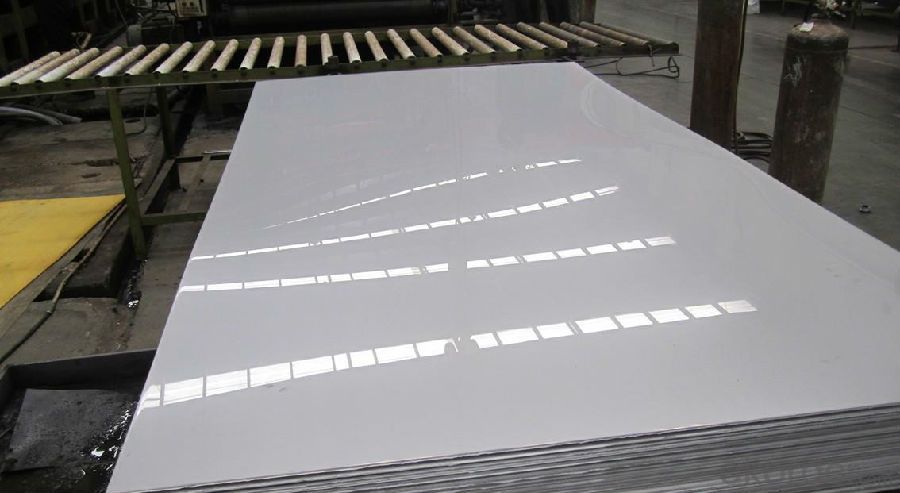
Material of stainless steel:
304,304L,309S,310S,316,316L,316Ti,317L,317L,321,347H,409,409L,410S,420,430,201,202,etc.
Thickness of stainless steel:
From 0.3mm to 100mm
Width of stainless steel:
1000mm,1219mm,1250mm,1500mm,1800mm,2200mm,2500mm or as your requirement
Length of stainless steel:
2000mm,2438mm,2500mm,6000mm,6096mm or as your requirement
Application of stainless steel:
Stainless steel plate applies to construction field, ships building industry, petroleum & chemical industries, war and electricity industries, food processing and medical industry, boiler heat exchanger, machinery and hardware fields. Our company has cooperative relation between the domestic agents. Stainless steel plate can be made accordingto the customers requirements. Fasten delivery. Quality assured.Welcome to order more.
Contacts
If you have any question,please feel free to contact us.
- Q: How do you clean and maintain stainless steel sheets?
- To clean and maintain stainless steel sheets, you'll need a few basic supplies: a microfiber cloth or soft sponge, mild dish soap or stainless steel cleaner, warm water, and a towel for drying. Start by rinsing the stainless steel sheet with warm water to remove any loose dirt or grime. Then, apply a small amount of mild dish soap onto the microfiber cloth or sponge and gently scrub the surface of the stainless steel sheet. Avoid using abrasive materials or harsh chemicals as they can scratch or damage the stainless steel. After cleaning, rinse the sheet thoroughly with warm water to remove any soap residue. To prevent water spots, wipe the surface dry with a clean towel. Make sure to always dry the stainless steel sheet after cleaning to prevent water spots or streaks. If there are stubborn stains or fingerprints that won't come off with soap and water, you can use a stainless steel cleaner specifically designed for this purpose. Follow the instructions on the cleaner and use a soft cloth to apply it to the sheet. Wipe in the direction of the grain to avoid scratching the surface. Rinse thoroughly and dry as mentioned earlier. To maintain the shine and luster of stainless steel sheets, it's important to avoid using abrasive cleaners, scouring pads, or steel wool, as they can damage the surface. Also, be careful not to use cleaners containing bleach or chlorine as they can cause discoloration. Regularly cleaning the stainless steel sheets is essential to prevent buildup of dirt, grease, or other contaminants that can lead to corrosion. A weekly cleaning routine should suffice for most applications, but you may need to clean more frequently in high-traffic or heavily used areas. In summary, cleaning and maintaining stainless steel sheets involves gentle scrubbing with mild dish soap or stainless steel cleaner, rinsing with warm water, and thorough drying. By following these steps and avoiding abrasive materials, your stainless steel sheets will stay clean, shiny, and looking their best for years to come.
- Q: How do you attach stainless steel sheets to a wall?
- There are various methods available for attaching stainless steel sheets to a wall. Consider the following options: 1. Utilize adhesive: Apply a specialized construction adhesive for metal bonding onto the rear surface of the stainless steel sheet. Press the sheet firmly against the wall and maintain pressure until the adhesive cures. This technique suits smaller and lighter stainless steel sheets. 2. Implement screw fasteners: Drill holes through both the stainless steel sheet and the wall at regular intervals. Use stainless steel screws suitable for the sheet thickness and wall material. Insert the screws into the holes and tighten them until the sheet is securely affixed to the wall. This method is effective for larger and heavier stainless steel sheets. 3. Opt for magnetic mounting: If the stainless steel sheet possesses magnetic properties, you can employ magnets to attach it to a metal wall. Place strong magnets on the back of the sheet, aligning them with magnets on the wall. The magnets will hold the sheet in position, allowing for easy installation and removal. 4. Consider panel mounting systems: Some manufacturers offer specialized panel mounting systems specifically designed for stainless steel sheets. These systems typically consist of brackets or clips that attach to the back of the sheet and then hook onto a track or rail system mounted on the wall. This method ensures a secure and visually pleasing attachment solution. When attaching stainless steel sheets to a wall, it is crucial to ensure that the wall surface is clean, dry, and properly prepared. This will optimize adhesion and prevent potential issues. Additionally, always adhere to the manufacturer's instructions and guidelines for the specific method or product being employed.
- Q: What are the different surface patterns available for stainless steel sheets?
- Some of the different surface patterns available for stainless steel sheets include brushed, mirror, embossed, and patterned.
- Q: 904L stainless steel plate generally used in what industry is more?
- Super austenitic stainless steel (904L stainless steel) is a highly alloyed austenitic stainless steel carbon content is very low, in dilute sulphuric acid has good corrosion resistance for corrosion in harsh environmental conditions and design.
- Q: What are the cost considerations when purchasing stainless steel sheets?
- The cost considerations when purchasing stainless steel sheets include the grade and quality of the stainless steel, the size and thickness of the sheets, any additional finishes or coatings, and the quantity being purchased. Additionally, factors such as transportation and delivery costs, as well as any applicable taxes or import duties, should also be taken into account.
- Q: Can stainless steel sheets be used for medical implants or devices?
- Yes, stainless steel sheets can be used for medical implants or devices. Stainless steel is a common material used for medical implants and devices due to its excellent corrosion resistance, strength, and biocompatibility. It is often used for applications such as orthopedic implants (like hip replacements and bone plates), surgical instruments, dental implants, and cardiovascular devices. Stainless steel sheets can be precisely fabricated into the desired shape and size for various medical applications, ensuring durability and long-term functionality. Additionally, stainless steel can be easily sterilized, making it suitable for use in medical environments.
- Q: What does stainless steel plate mean?
- The stainless steel plate is divided into two kinds of hot-rolled and cold-rolled parts according to the method of manufacture, including the thickness of 0.02-4 mm thin cold plate and 4.5-50 mm medium plate. According to the structural characteristics of steel, they can be divided into 5 types: austenite type, austenite ferrite type, ferrite type, martensite type and precipitation hardening type. Can withstand oxalic acid, sulfuric acid iron sulfate, nitrate, nitrate acid and hydrofluoric acid, sulfuric acid copper sulfate, phosphoric acid, formic acid and acetic acid and various acid corrosion, widely used in chemical, food, medicine, papermaking, petroleum, atomic energy industry, as well as construction, kitchen utensils, cutlery, household appliances, vehicles of all kinds of parts. In order to ensure the mechanical properties of various kinds of stainless steel sheet, such as yield strength, tensile strength, elongation and hardness, the steel plate must be annealed, treated by solution, aging treatment before delivery.
- Q: Can stainless steel sheets be used for kitchen countertops?
- Absolutely, kitchen countertops can indeed be made from stainless steel sheets. The reason stainless steel is such a widely favored option for kitchen countertops is because of its exceptional durability, heat resistance, and hygienic qualities. It possesses a remarkable ability to ward off stains, corrosion, and rust, rendering it an ideal material for high-traffic areas, such as the kitchen. Moreover, stainless steel countertops are effortlessly cleaned and maintained, making them an extremely practical choice for bustling kitchens. Furthermore, the inclusion of stainless steel lends a polished and cutting-edge appearance to the kitchen, rendering it an exceedingly popular choice for both contemporary and industrial-style kitchens.
- Q: How do you prevent galling when using stainless steel sheets?
- To prevent galling when using stainless steel sheets, there are several measures you can take: 1. Lubrication: Apply an appropriate lubricant or anti-seize compound on the contact surfaces to reduce friction. This helps to create a barrier between the stainless steel sheets and prevent them from sticking and galling. 2. Proper surface finish: Ensure that the stainless steel sheets have a smooth surface finish. Rough or uneven surfaces can increase the risk of galling. Consider using sheets with a polished or finely ground finish to minimize the chance of galling. 3. Control the contact pressure: Avoid excessive pressure when using stainless steel sheets. Excessive pressure can generate heat and increase friction, leading to galling. Adjust the pressure to a level that allows smooth movement without causing excessive friction. 4. Minimize sliding or rubbing: Reduce the amount of sliding or rubbing between stainless steel sheets. If possible, use rolling or lifting techniques instead of dragging or sliding the sheets across each other. This helps to minimize the risk of galling by reducing the contact area and friction. 5. Use compatible materials: When using stainless steel sheets in contact with other materials, ensure they are compatible. Some materials, such as aluminum or certain coatings, can promote galling when in contact with stainless steel. Choose materials that are less prone to galling or use protective coatings to prevent direct contact. 6. Avoid excessive heat: Excessive heat can increase the likelihood of galling in stainless steel sheets. Ensure that the temperature is controlled and does not reach levels that can cause the sheets to heat up significantly. This can be achieved through proper cooling methods or by using heat-resistant materials if necessary. By following these preventive measures, you can significantly reduce the risk of galling when using stainless steel sheets, ensuring smooth operation and prolonging the lifespan of the sheets.
- Q: Are stainless steel sheets easy to clean?
- Yes, stainless steel sheets are easy to clean. They have a smooth surface that is resistant to stains and can be easily wiped clean with soap and water. Additionally, they are also resistant to rust and corrosion, making them low-maintenance and suitable for various applications.
Send your message to us
Stainless Steel sheet and plate with Big discount
- Loading Port:
- Shanghai
- Payment Terms:
- TT OR LC
- Min Order Qty:
- 10000 m.t.
- Supply Capability:
- 5000000 m.t./month
OKorder Service Pledge
OKorder Financial Service
Similar products
Hot products
Hot Searches
Related keywords
